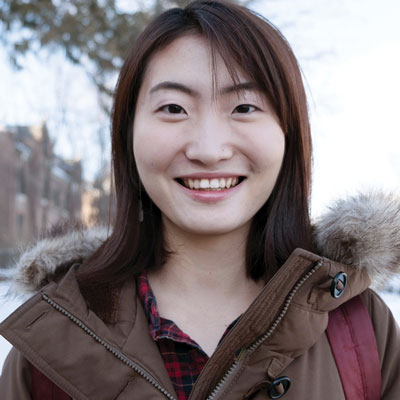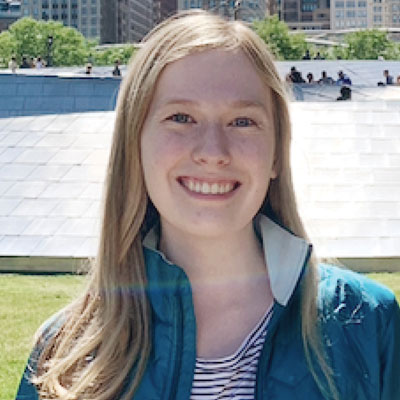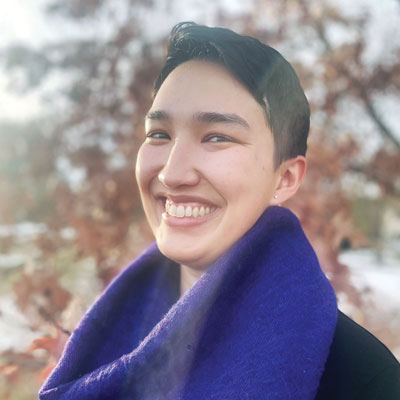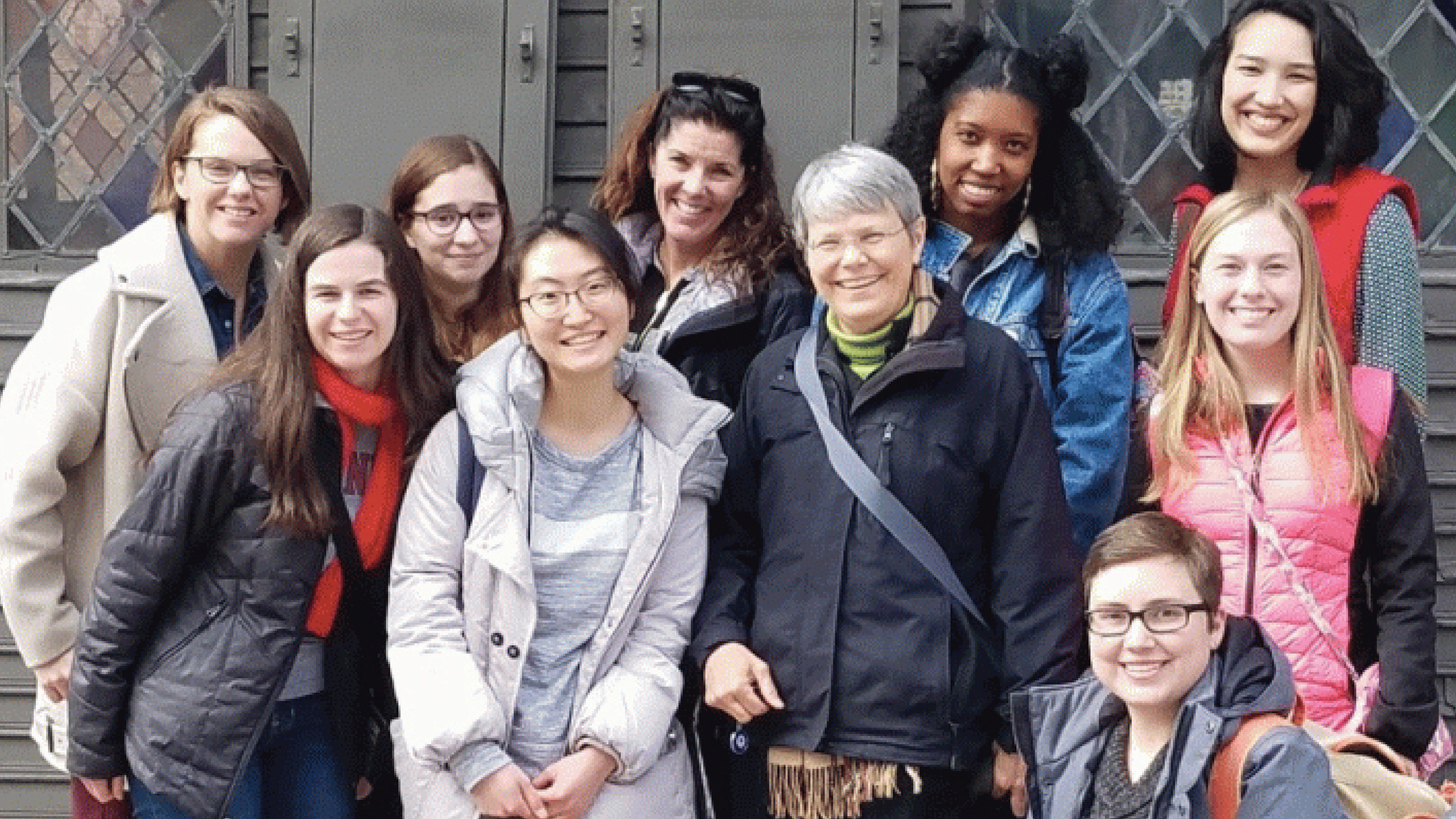Innovation, Inclusion, and Accessibility
College, perhaps by its very design, can be difficult at the best of times. New ideas, new friendships, and new spaces all pose challenges. Overcoming those can be part of the process of learning and growing and realizing one’s own potential.
Sometimes, however, the challenges a student faces are not only unintentional, but in opposition to the process of learning. They have the potential to thwart even the best and brightest student. When such obstacles remain, often unknown or unrecognizable to much of the campus community, they can seem impossible to overcome.
An English language and literature major, Rebecca Hsiung ’19 often found herself struggling in the classroom with things most students take for granted. In addition to the challenging coursework and assignments she worked on with her peers, Hsiung also found herself grappling with speech, vision, and coordination issues, a direct result of the classroom environment.
“Classroom lighting was a big challenge for me,” says Hsiung. “Like many people with migraines, the brightness and quality of light in a space can trigger or intensify symptoms. During my most severe episodes, the type of lighting in my classrooms could make or break my ability to attend class on any given day.”
Whether on campus, in the workplace, or in the community, facing and overcoming issues such as these is an everyday occurrence for individuals with disabilities. While the Americans with Disabilities Act (ADA) requires organizations to comply with some standards of accessibility, many aspects of building design and construction remain inequitable and a hindrance to disabled persons.
Human-Centered Design
Recognizing the extra challenges those with disabilities face, Professor Emerita of Political Science Eliza Willis and Autumn Wilke, assistant dean for disability resources, launched the Innovation Inspires Inclusion project in 2017. Funded by a grant from the Innovation Fund, the program creates leadership opportunities for students with primary or secondary experience with a disability to use those experiences to create an environment on campus — and beyond — that truly allows people of all abilities to do their best work.
 Miho Tatsuki ’20
Miho Tatsuki ’20“The Innovation Inspires Inclusion program is incredibly important to the College,” says Wilke. “Having students with disabilities identify barriers they encounter and then offer solutions that can be made on a structural level is essential to creating an equitable environment on campus.”
The pilot program hired several students to serve as “access user experts,” who would explore campus and research solutions for potential problem areas. Students received training in this practice through a weeklong visit to the Institute for Human Centered Design (IHCD) in Boston over the 2017 spring break.
“I’ve always been interested in making spaces more accessible, and I felt the voice of people with disabilities from ethnic minority backgrounds have not been well represented,” says Miho Tatsuki ’20.
“I thought by pursuing the access user experts position, I would increase the representation of people with disabilities from diverse backgrounds.”
During the visit to the IHCD in Boston, Tatsuki and her peers spent time at the center studying the concept of human-centered design and later explored college campuses around the city to put their newfound knowledge into practice.
“I learned a lot more about accessibility and inclusive design,” says Tatsuki. “Exploring the city and other campuses really let me see what is and is not working. I really came to understand better how people with disabilities learn to adapt to environmental challenges and how this user expert method encourages us to be critical of the existing design and how spaces can be improved.”
Knowledge Into Action
The goal of the Innovation Inspires Inclusion program is to create an environment that allows people of all abilities to do their best work, using universal design principals to remove as many barriers as possible and make accommodations for disabilities when needed.
So it was more than just an academic exercise that instilled participants with knowledge; the IHCD visit was designed so that access user experts would return to Grinnell and combine this knowledge with their personal experiences to discover obstacles on campus and find workable solutions to them.
“We took what we learned in Boston and then conducted reviews of on-campus spaces and buildings and created reports that we presented to the administration and then changes were actually made,” recalls Rachel Fritzell ’20.
 Rachel Fritzell ’20
Rachel Fritzell ’20One such review involved exploring where benches were placed on campus and if their placement was adequate for someone with a disability.
“We conducted a walk-through and found there were really long stretches on campus where there would be nowhere to sit down, and that makes it difficult for someone with a physical disability,” says Fritzell. “We documented our findings and made a recommendation to break up those stretches and suggested good places to put additional benches. It was really exciting that these changes were made, because they really are helpful; and it was good to see something practical come out of our efforts.”
The group also made recommendations to address the lighting situation that vexed Hsiung as a student.
Someone with low vision might benefit from really bright lighting, but some people who have migraines find that triggers their condition. The access user experts were able to make sure that adjustable lighting was installed in the new Humanities and Social Studies Center (HSSC), which opened in 2019, so it’s not just one size fits all. The brightness level can be adjusted in most rooms to better meet the needs of those using the space at the time.
“We learned a lot on the trip to Boston and the students returned with an enthusiasm to make necessary changes on campus,” says Wilke. “Putting their knowledge to work, they conducted a review of spaces on campus and offered real, practical solutions to the issues they discovered, of which many have now been addressed because of their work.”
This consideration of universal design and access on campus may help permanently shift the paradigm and change how the College thinks about these issues going forward. And the knowledge and concern these students took away from the experience not only led to specific changes that will have a lasting impact on campus but also had impact that continues to resonate in their own personal and professional lives.
“All of the students who attended the original training in Boston have now graduated, taking their learning with them to their careers post-Grinnell,” says Wilke. “However, before they left, they were involved in training the next team of access user experts, creating a sustainable program on campus.”
“We took what we learned in Boston and then conducted reviews of on-campus spaces and buildings and created reports that we presented to the administration and then changes were actually made.”
Rachel Fritzell ’20
Advocates for Inclusion
“The experience made me really passionate and opened my eyes to just how much I could do and help by being involved, says Fritzell. “I left Grinnell wanting to do more and engage in more opportunities, whether it be as a user expert in the future or anything else having to do with helping others with disabilities.”
When she began a job at Morningstar Financial in Chicago, where she is now a marketing associate, Fritzell found that the company had an employee resource group for learning disabilities but not for physical disabilities. She immediately reached out to the head of her program and suggested creating one.
“This was in my first month of starting at Morningstar,” she recalls. “Since then, we expanded the group, and I’m now part of the leadership. It’s just made me so much more open to talking about things. I’m more open about my disability now. People can tell I have a disability, but I used to just get so awkward when asked about it. But now I’m ready to tell people more about it and how it impacted my life and to use my knowledge and skills to help others.”
Her Sentiment Is Echoed by Other Participants in the Program.
Tatsuki, who graduated with a degree in psychology, is now living in Okinawa, Japan, working at the Okinawa Institute of Science and Technology studying ADHD (attention deficit hyperactivity disorder); she has applied to enter a doctoral program.
“As I’m pursuing clinical psychology, I hope to make mental health care space more accessible and welcoming using the principles of universal design and inclusive design,” she says. “Part of this is as simple as not assuming someone doesn’t have a disability and not making assumptions about people and their access needs until you talk with them about it.”
Hsiung adds, “Because of the rich experiences I had at Grinnell, disability advocacy will always be an important part of my life and career. This and other disability-positive experiences that I had led me to pursue a career in inclusive education and to advocate for creating learning environments that are fully accessible to all students and challenge negative conceptions of disability.
“Having a disability is usually seen as a liability or something to be pitied. Many people don’t realize that disability can be a powerful source of joy, community, and commitment to making the world more equitable and inclusive for everyone. This entire experience really helped me embrace that idea.”

“Having a disability is usually seen as a liability or something to be pitied. Many people don’t realize that disability can be a powerful source of joy, community, and commitment to making the world more equitable and inclusive for everyone."
Rebecca Hsiung ’19

